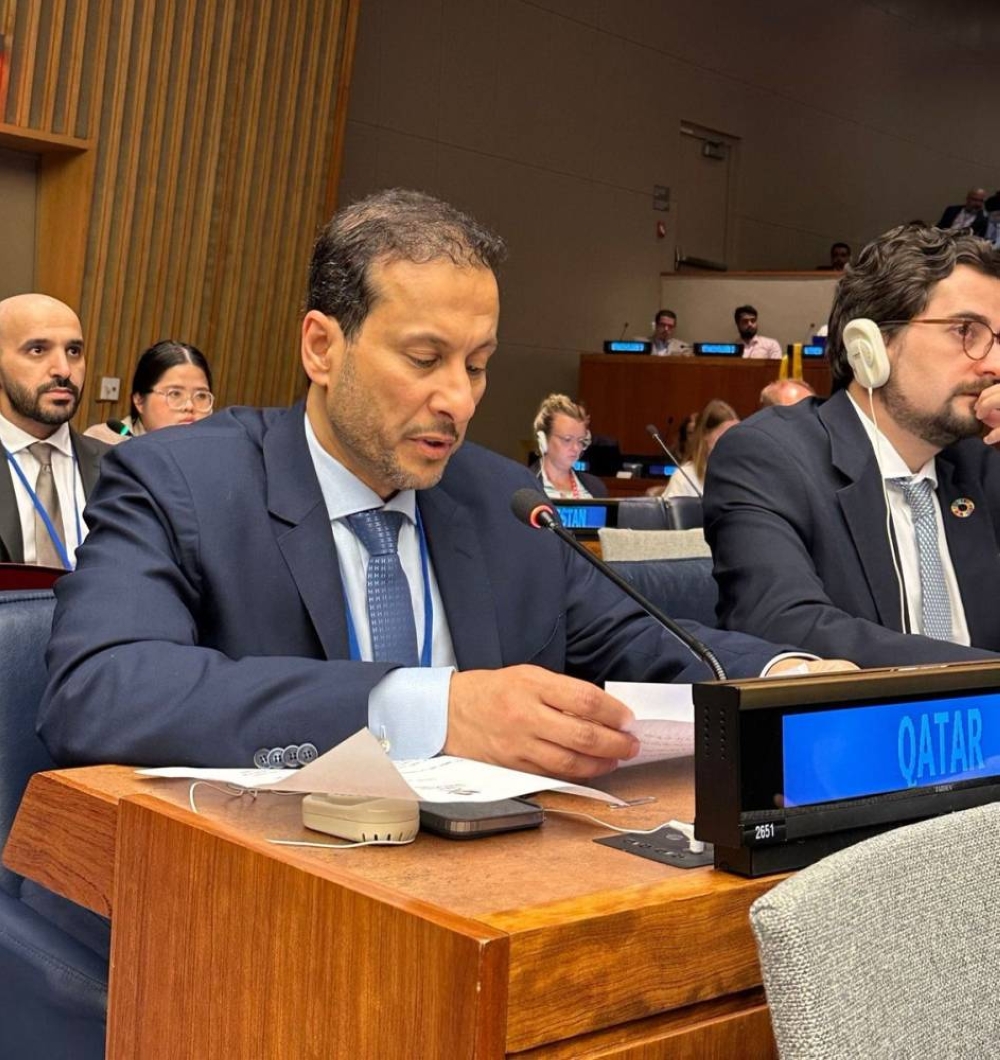Qatar affirmed that its foreign policy is deeply rooted in cooperation and partnership to face common challenges, in line with its National Vision 2030, reaffirming its commitment to forge strong partnerships to face global challenges and achieve Sustainable Development Goals (SDGs) through cooperation, solidarity, transformative actions, strong partnerships to face global challenges and achieve sustainable development goals through cooperation, solidarity and transformative measures - striving to leave no one behind.
This came in Qatar's statement delivered by HE Director of the Department of International Cooperation at the Ministry of Foreign Affairs Shaheen Ali Al Kaabi during the interactive panel discussion on 'Interlinkages with other SDGs - Partnerships for the Goals' at the High-level Political Forum on Sustainable Development (HLPF), under the auspices of the Economic and Social Council in New York.
His Excellency pointed to the important role of global solidarity in addressing humanitarian crises and promoting sustainable development for countries, people and societies, and lauded its strong cooperation and partnership with the United Nations (UN) to serve the region and the world.
The inauguration of the United Nations House in Doha during the Fifth UN Conference on the Least Developed Countries (LDC5) embodies the Qatar-UN long-term strategic partnership to overcome global challenges, he added.
His Excellency pointed out that the Qatar Fund for Development (QFFD) provided about USD 708 million in humanitarian and development aid, making Qatar a major donor to developing and least developed countries, noting that these projects include various humanitarian aspects, response to emergencies, crises and disasters, and efforts to enhance resilience and drive sustainable development around the globe.
The long-term strategic partnership of the State of Qatar with the United Nations Development Program (UNDP) has resulted in remarkable results, one of which is the UNDP's Accelerator Labs Network, he added, indicating that Qatar's contribution of USD 30 million has helped provide critical support for more than 100 countries and address global development challenges such as climate change, the future of work, and digital transformation.
His Excellency also noted that Qatar's partnership with Bill and Melinda Gates Foundation represents another example of its commitment to global partnerships. This partnership aims to provide up to USD 200 million to support climate-adaptive agriculture tools and technologies to build resilient food systems and markets that provide nutrition, income, and economic opportunities to small-scale producers and their communities in Africa.
In this regard, HE Director of the Department of International Cooperation referred to Qatar's announcement of its partnership with the US and UK to launch a USD 10.5 million drought assistance and resilience program to help Somalia through the Building Resilient Communities in Somalia (BRCiS) consortium. The trilateral partnership builds upon famine prevention and resilience investments made by US Agency for International Development (USAID), UK Aid Direct (UKAID), and QFFD from 2021 to 2022, ensuring the continued delivery of emergency cash assistance to purchase food and multi-sector humanitarian assistance, alongside resilience activities to ensure communities are protected and empowered.
His Excellency also praised the partnership between QFFD and the Food and Agriculture Organization (FAO), pointing out that Qatar's contribution of USD 1.7 million to Somalia launched at the end of 2021 targeted food insecurity and aimed to enhance agricultural and animal production for smallholders through climate-resilient proactive measures.
Qatar
Qatar affirms its foreign policy's deep-rootedness in co-operation, partnership to face challenges

